Leaving the comfort and salary of a steady office job for the uncertainty of life as a self-employed digital nomad is a huge change, both personally and professionally. I did it myself in 2021 when I left my job as a lawyer in London.
Overall, it was an amazing decision and I’m infinitely happier than I was before. But, it’s not all roses and sunshine. It can be hard at times, but ultimately, I think the challenges are worth the huge upsides.
Here are the steps that helped me go from office-bound and miserable to location-independent and free. These tips all come from my own personal experience. I hope they’re useful and help you pull off your own escape.
How to Plan Your Exit: Going From Office Desk to Digital Nomad
Whether you’re craving freedom, adventure, unlimited travel, better weather, or simply a life outside the corporate box (for me, it was all of those things), here are a few things I highly recommend you do first. This will help set yourself up for success, before taking the plunge.
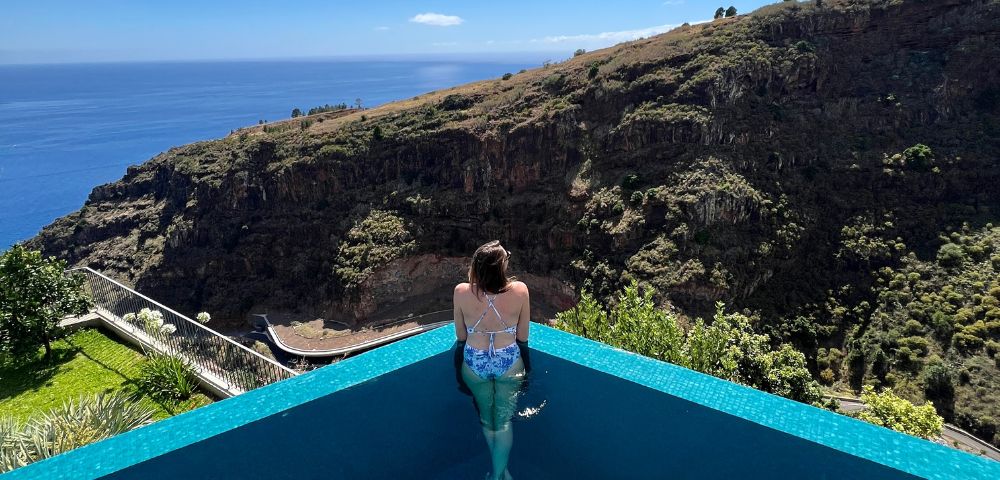
Are you ready to live a remote lifestyle?
Take the quiz and see if we can help.
Our Creator Kickstarter Coaching Program will be accepting a maximum of 10 people to start building their dream remote lifestyle. Learn more & see if we can help you achieve your goals!
Reflect on Your Why and Goals
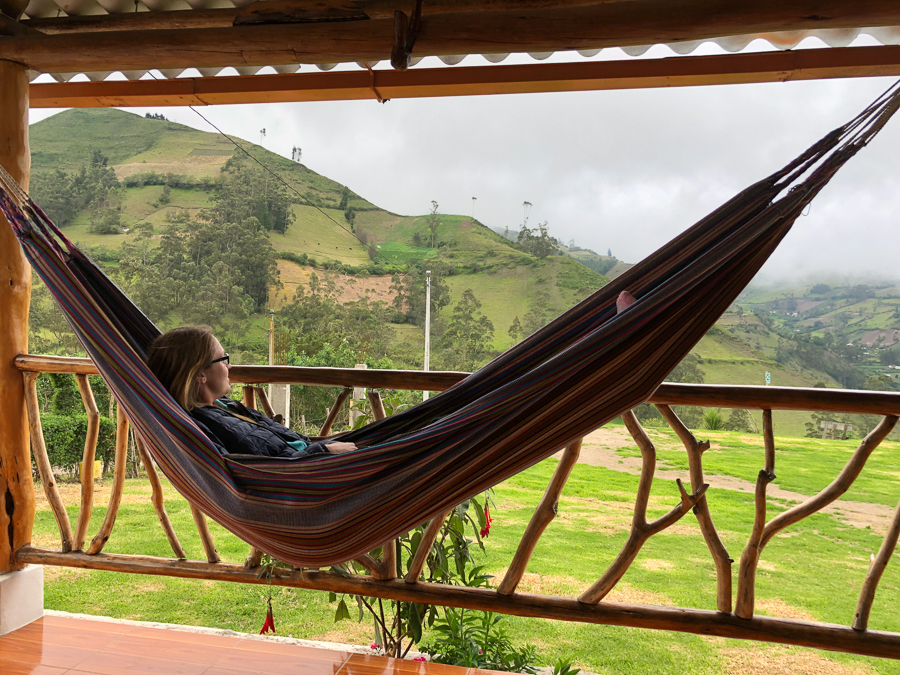
Before you write your resignation letter, take a step back and ask yourself why you want to become a digital nomad. What’s driving this decision? Whether it’s the freedom to explore new places, the chance to work on your own terms, or just wanting to escape office life, understanding your motivation is key.
For me, it was the frustration of being stuck in a rigid routine, and the stuffiness of the legal profession. I realized I wanted a lifestyle that prioritized flexibility and adventure. This “why” still gives me clarity and motivation to this day, and helps me stay focused when times get tough.
Write down your goals – both personal and professional. Do you want to see specific countries? Learn new skills? A new language? Create a sustainable income online? Build a mighty business empire? Having clear objectives will help guide your decisions and keep you motivated.
Build Financial Stability and Security
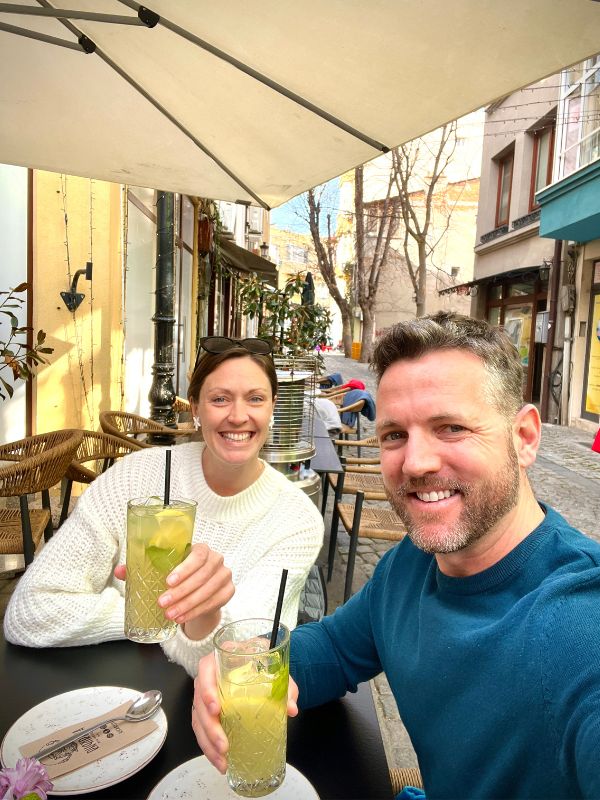
Money stress is one of the worst parts of being a freelancer. That’s why creating a solid financial safety net is essential before you hand in your notice. You’ll need savings to cover at least a few months of living expenses, plus an emergency fund, and a plan for steady income going forward.
My business took almost a year to start making any money. Being in Central America for the first few months of my nomad life certainly helped make the money I had saved go further. But, if I hadn’t built up a pot of savings before I quit my job, I would’ve soon run out.
Before leaving your job, make a budget, cut unnecessary expenses, and try to save as much money as possible. You don’t need to have already built up a business to the point of profitability before you hit the road, but the closer you are to this stage, the less risky it will be.
Develop Remote Work Skills
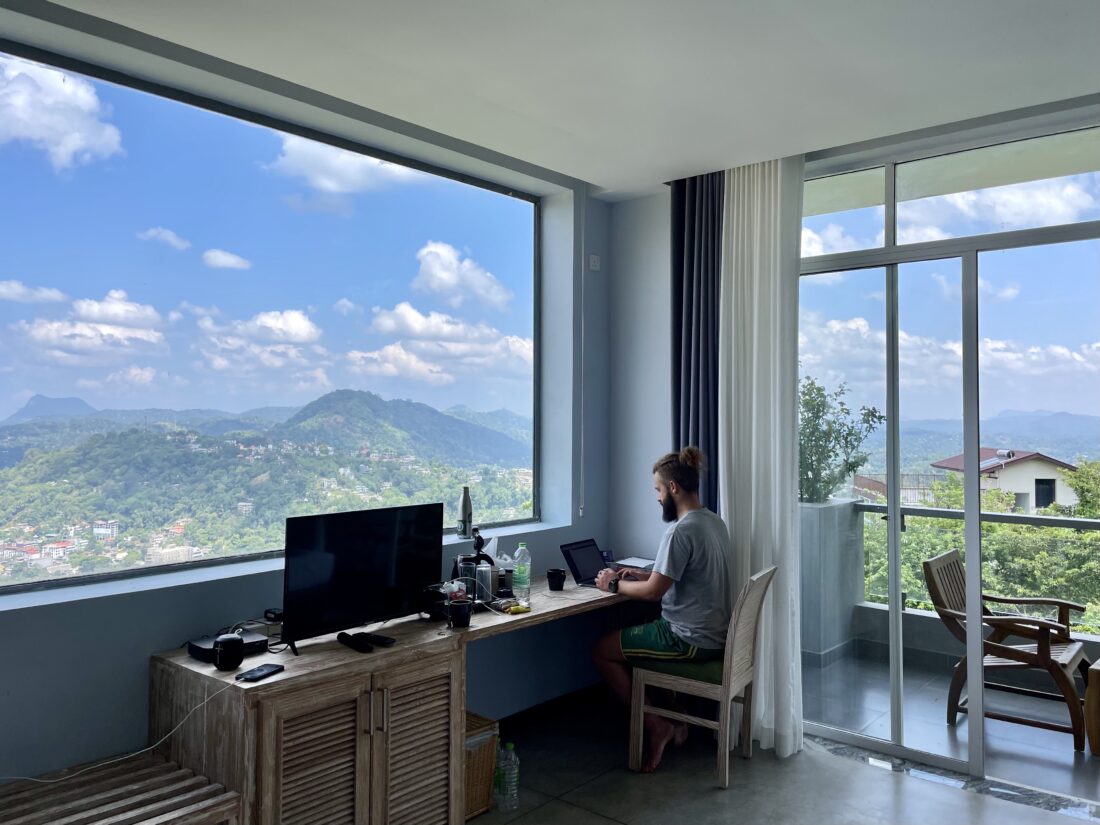
One of the things I love most about being a digital nomad is the ability to travel as much as you like. But, like it or not, you’ll still probably need to spend a large chunk of your time working – even if you can nip off for a cheeky surf between meetings.
As many of us learned during the pandemic, remote work requires quite a different mindset than working in the office. You need personal discipline, solid communication skills, and the ability to manage your time effectively without having a boss looking over your shoulder.
I find this much easier working on my own business that I care deeply about. But, don’t underestimate how different the experience is. If you aren’t already, get familiar with tools such as Slack and Teams, and consider taking online courses or enrolling in a coaching program to help you upskill.
Research Potential Destinations
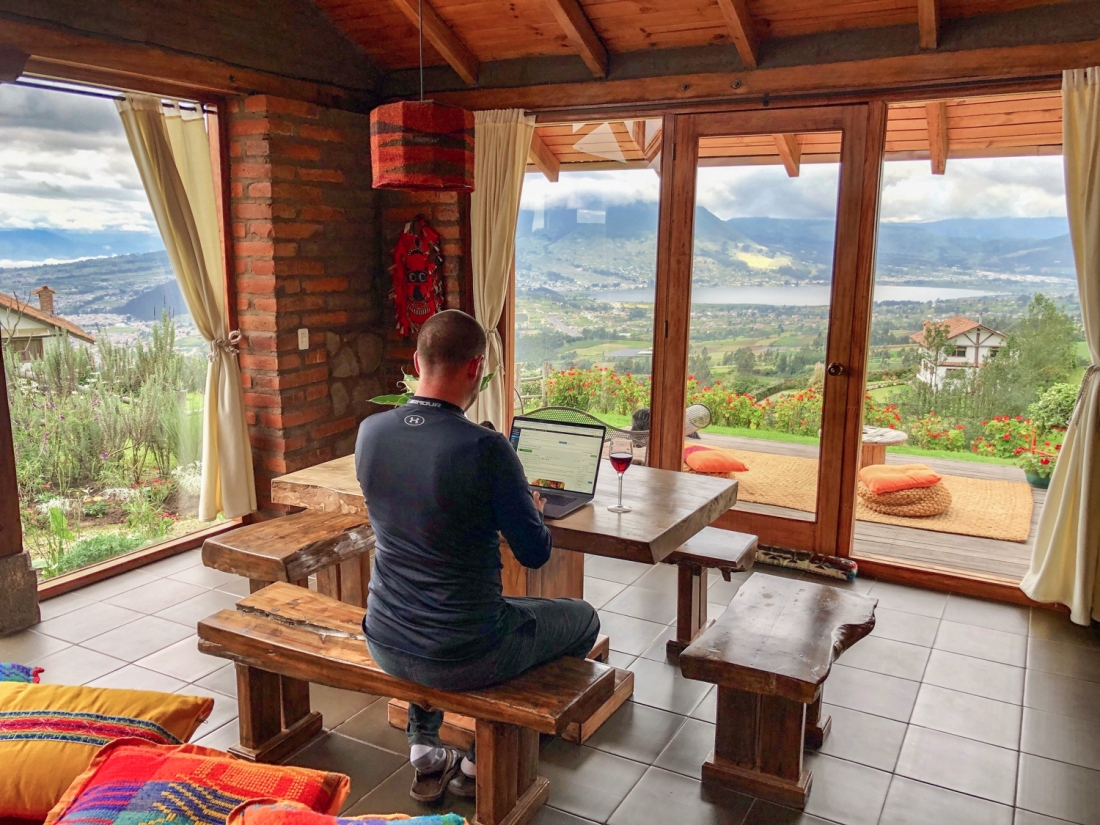
Not all destinations are created equal for digital nomads. Some places (like Thailand and Portugal) are known for their low cost of living, lightning-fast internet, welcoming attitude to nomads, and thriving communities of remote workers. Other places are more challenging.
Picking the right destination for your lifestyle and budget can make or break your experience. Keep in mind your own priorities. Do you want year-round sunshine? Easy access to coworking spaces? A low-key vibe or a busy social scene? Rural or urban? Is the time zone likely to be an issue?
Your first destination doesn’t have to be perfect. I spent a month in Chiapas, Mexico when I first started out. It’s an absolutely stunning place, but it wasn’t ideal for remote working, with regular power cuts and ropey internet. I also managed to catch dengue and covid at the same time – rough.
Start With a Trial Run
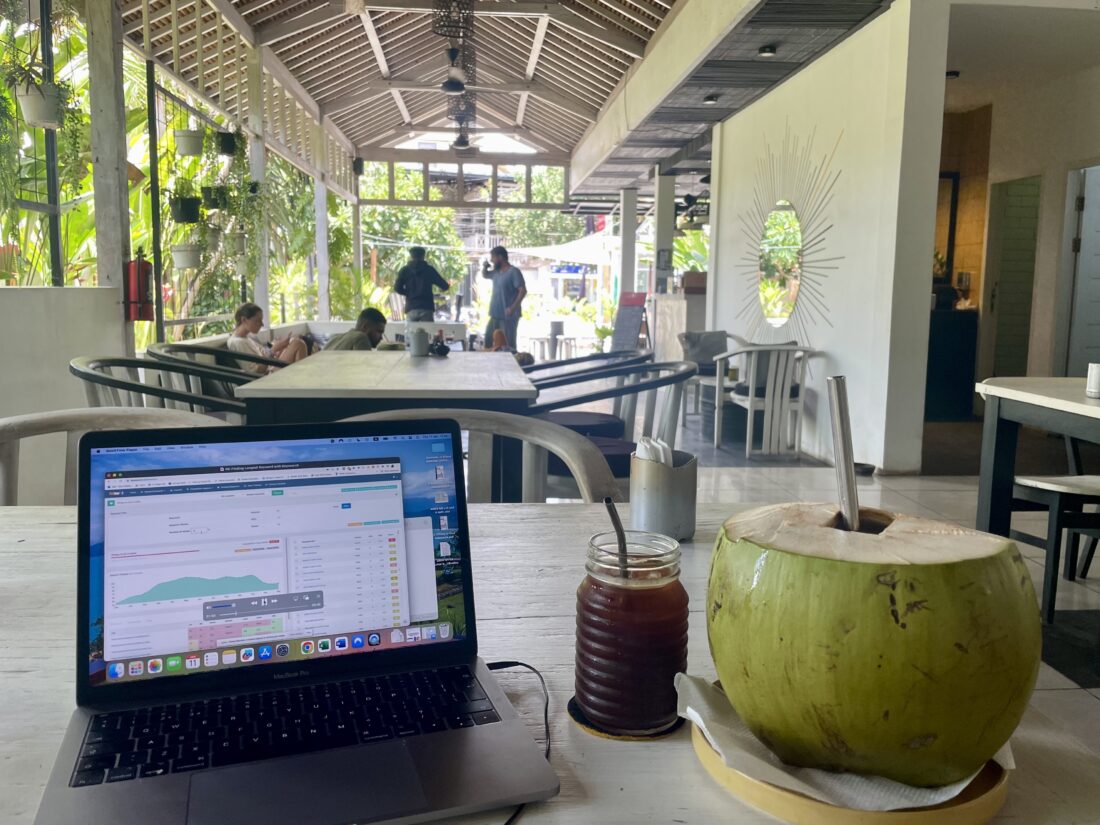
Before you quit your job and fully commit to the digital nomad lifestyle, try dipping your toes in the water. A short-term trial run can give you a taste of what it’s like to work remotely while traveling, without the pressure of making everything perfect straight away.
I did this by spending a few weeks in Portugal while I was still working at my old job. My work was fine with me doing it (it was the summer of 2020, so remote work was the norm anyway), and I got a taste of what digital nomadism would be like before going all in.
This may not be possible in your current circumstances, but, if you do get the opportunity to do a trial run like this, I’d highly recommend it. It’ll help you figure out what works (and what doesn’t), what tech and gear you do (and don’t) need, and how well-suited you are to working in a non-traditional environment.
Plan Your Tech and Tools
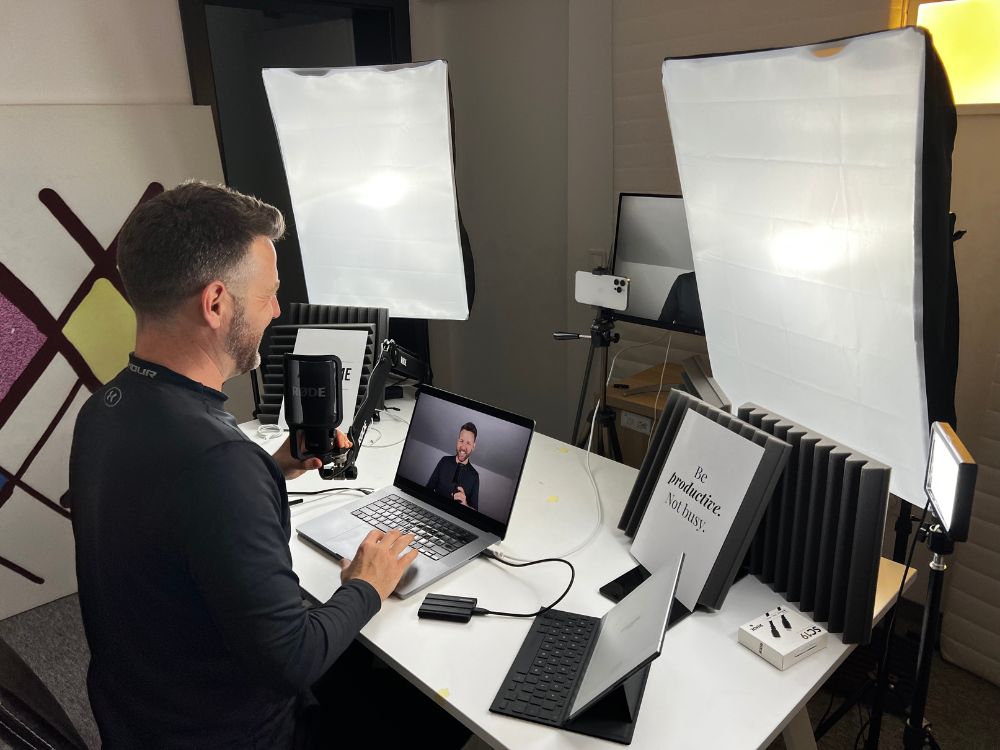
Having the right tech setup is critical when it comes to working on the road. You’ll need a setup that’s reliable, portable, and keeps you productive (and comfortable) no matter where you are in the world.
My tech stack includes my MacBook Pro, wireless keyboard and mouse, foldable laptop stand, noise-canceling headphones, external hard drive (for backups), universal power adapter, extension cable, and my iPhone (with an eSIM for whichever country I’m in).
Don’t forget software subscriptions, too. I use Google Drive, Zoom, Microsoft Office, and various SEO and blogging subscriptions on a near-daily basis. Tailor your own list as needed.
Build a Support Network
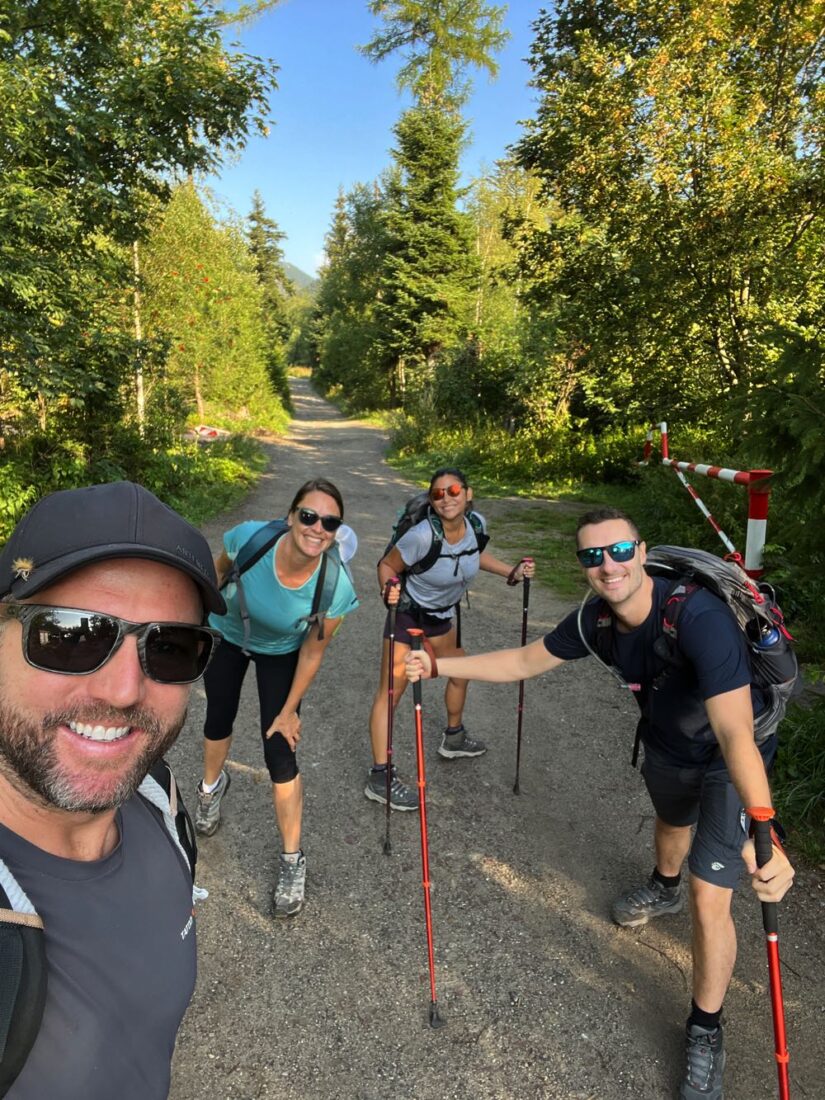
Being a digital nomad can be isolating at times, especially if you’re traveling solo. I’m fortunate to be sharing this adventure with my partner, but still, it can be tough sometimes. Most of our friends are 1,000s of miles away, and they often don’t relate to things we struggle with on a day-to-day basis.
That’s why building a support network is so important. Coworking spaces can be great places to meet other like-minded people. I’ve made friends at social events organized at coworking spaces, both in Sri Lanka and Indonesia, and I’m still in touch with several of them to date.
Don’t underestimate the value of these relationships. Fellow nomads can share insights about places they’ve been, recommend tools that work for them, and even collaborate with you on projects. It’s also great to be able to share your experiences with people who “get” it, as your friends from home might not.
Also: Dariece and Nick’s “Remote Goats” coaching program is designed to guide you through the process of becoming an online entrepreneur and creating a location-independent lifestyle. I wish I’d had that kind of support when I started!
Take the Leap

Planning and preparation are essential, but at some point, you’ve just got to go for it. Setting a firm exit date can help you stay focused and give you something to work toward. Without a clear timeline, it’s easy to get stuck in the “planning” phase forever.
It will likely feel like a tremendous leap of faith. And it will probably be riskier than staying in a stable salaried job. But, there’s also the risk of looking back on your life and regretting not having tried something like this. For me, that would be a far worse outcome than my business not working out.
Trust in your planning, but also accept that not everything will go perfectly. And that’s okay – every nomad’s journey is unique. Embrace the uncertainty. And remember, if it doesn’t work out, or if you change your mind about what you want, the option to return to a more “traditional” life will still be there.
In Conclusion
Becoming a digital nomad is a big decision, but with the right planning and mindset, it’s absolutely achievable. By breaking the process into manageable steps, and following the tips I’ve shared here, you’ll be setting yourself up for success.
It’s not always easy, but it’s so worth it. Leaving the conformist, hierarchical offices and suits of the corporate world to create a life of freedom and adventure was one of the best choices I’ve ever made. It might just be the same for you, too. You’ll never know until you try.

